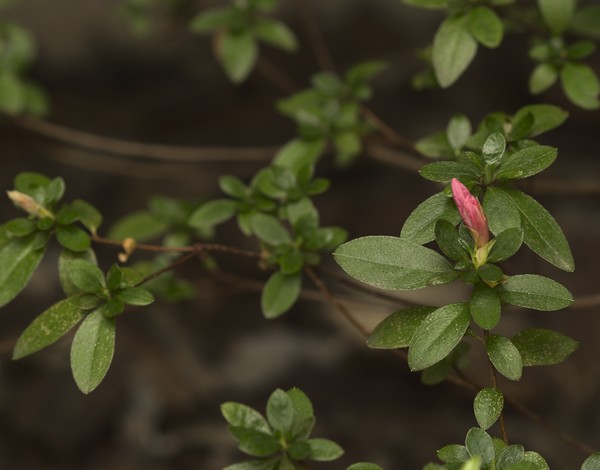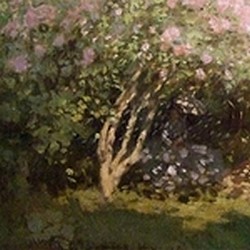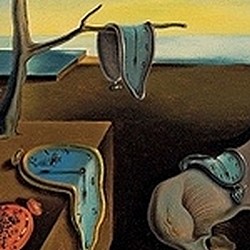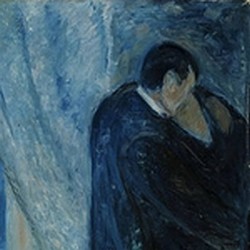
My friend Irene doesn't like winter at all. Darkness saddens her, and she can't stand the cold. There are many places in Europe darker and colder than Barcelona, but we all get used to what we know and Irene finds our winter unpleasant enough to count the days until it's over. I say to her every year that light slowly returns after New Year, and that to notice the sun on our faces during the cold days of February it's delightful. And I talk her about the January shrinks or the almond blossoms, and I tell her that some days later the mimosas will also bloom, and the buds will grow bigger and bigger on the branches. In other words, I tell her about what Robert Schumann and Justinus Kerner called Erstes Grün, and, reading that article, I realize that I virtually use the same words; that's what I call a passion for February. But it's all in vain. She yearns for spring, and the thing is that spring arrived. Yes, I know that we should wait until 20 March, but look out the window.
Spring also arrived at Liederabend, with a song by Gabriel Fauré that reflects Irene's joy when she realizes that, as the title says, L'hiver a cessé, winter is over. Fauré wrote an absolutely happy song that closes his first major cycle, La bonne chanson (The Good Song), composed between 1892 and 1894. He chose nine of the twenty-one poems in the collection with the same name by Paul Verlaine, and he built a story, as Robert Schumann had built the story of Dichterliebe. The main difference is that Fauré's cycle has the rare quality of being a happy cycle, that turns us into witnesses of a love story from the very first day to the wedding. He was moved by his passion for the singer Emma Bardac (although they dind't get married).
As Schumann did with Heinrich Heine's poems, the composer disordered the poems of Verlaine. These are the nine he chose for the cycle: 8 - 4 - 6 - 20 - 15 - 5 - 19 - 17 - 21; the last one, L'hiver a cessé, closes both works. The original poem has five stanzas, but Fauré, eager to keep the happy atmosphere, cut the second one because it shows very briefly a sad image of Paris, "maussade et malade" (depressed and sick). The four stanzas that the composer kept speak of an exultant spring, reflecting the joy of the poetic voice. The exuberance of the song, already announced by a prelude in which we hear how the burst of the station approaches, is not exclusive to this piece of the cycle; we listen some time ago to the lively La lune blanche.
I told you last week about the harmonic changes of Du liebst mich nicht, that caught the attention of a critic of the time; La bonne chanson had a similar effect seventy years later and puzzled almost everyone. Among the comments I read from Fauré's contemporaries, my favourite is that of Marcel Proust, who wrote to a friend that most young musicians didn't like the cycle, because it was "needlessly complex", and added, "but I don’t care, I adore it."
Paul Verlaine wrote in 1869 La bonne chanson for his fiancée Mathilde Mauté, who was only sixteen; they got married the next year. Although the poet sincerely loved Mathilde, it was well known to everyone when Fauré wrote the cycle that the marriage had been a disaster, and that only two years after, the poet abandoned his wife and his son by poet Arthur Rimbaud, a year younger than Mathilde. This tumultuous and violent relationship also ended two years later with Verlaine's imprisonment, not really for having shot Rimbaud during an argument (he was slightly injured) but for their homosexual relationship. The great poet gives us much joy with his work, but his life was disgraced and marked by alcoholism; when Fauré composed La bonne chanson he was five-years old; he died two years later in consequence of his illness.
But maybe this story is disturbing the springlike joy of Irene, so let's go back to music. May your hearts rejoice with L'hiver a cessé, performed by Christopher Maltman and Graham Johnson.
L'hiver a cessé : la lumière est tiède
Et danse, du sol au firmament clair.
Il faut que le coeur le plus triste cède
À l'immense joie éparse dans l'air.
J'ai depuis un an le printemps dans l'âme
Et le vert retour du doux floréal,
Ainsi qu'une flamme entoure une flamme,
Met de l'idéal sur mon idéal.
Le ciel bleu prolonge, exhausse et couronne
L'immuable azur où rit mon amour
La saison est belle et ma part est bonne
Et tous mes espoirs ont enfin leur tour.
Que vienne l'été! que viennent encore
L'automne et l'hiver! Et chaque saison
Me sera charmante, ô Toi que décore
Cette fantaisie et cette raison!



 Auditory...
Auditory... Is Cäcil...
Is Cäcil...









